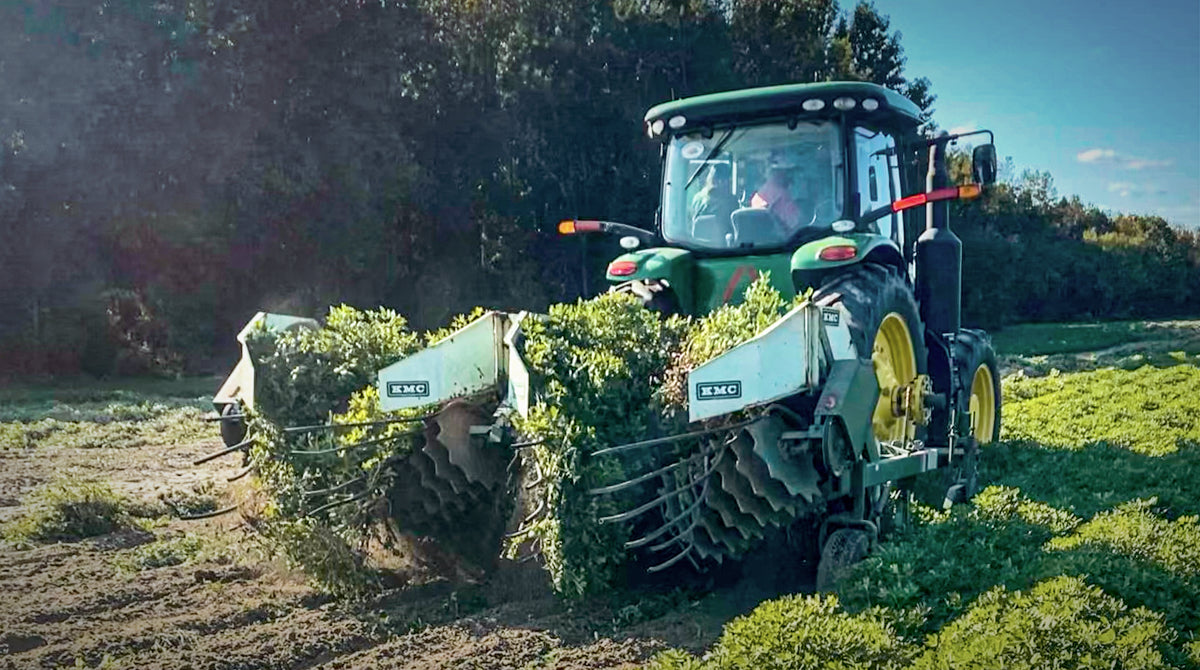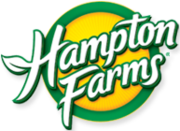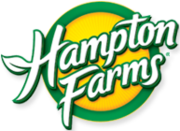A Guide to Peanut Harvesting and Shelling

Before heading into winter, the leaves turn vibrant yellows, oranges, and browns and begin to fall from the trees. Peanuts are no different, as their leaves also turn yellow and start to wither, signifying that they’re ready to be harvested and shelled. But what goes into peanut harvesting and shelling? How do they get from the ground to the shelf or into our delicious recipes? Below, we dig into the peanut harvesting process and cover how peanuts are shelled.
When is peanut harvesting season?
Peanuts are harvested in autumn, during the months of September, October, and even into November. Unlike many plants, a peanut plant flowers above the ground but fruits below it. This growing cycle takes somewhere between four and five months, during which the plant grows to be about 18 inches in height. Their harvest date primarily depends on when they were planted, however, as peanuts are typically harvested around 120-160 days after planting.
How are peanuts harvested?
When the peanuts are ready to be harvested, peanut farmers must loosen the plants and lift them from the earth’s soil. This process is completed using a “digger,” which severs the root and picks the plant away from the ground. At this point, the peanuts are placed in a “windrow,” with leaves facing down, to dry the legumes. They remain here for around three days, drying and curing. From the windrow, peanut farmers separate the peanuts from their leaves using a combine, and the isolated peanuts begin their trip to market, leaving the harvesting farm.

How are peanuts shelled?
While around 10% of peanuts become next year’s seed, around 80-90% of peanuts are sent to a sheller before heading to market. But first, the harvested peanuts are inspected and graded by the Agricultural Marketing Service of the U.S. Department of Agriculture to determine quality and value. After grading, peanuts are sent to be shelled. The initial step of the shelling process involves cleaning the peanuts, after which they are sent via conveyor belts through shelling machines. These machines force them through perforated grates to de-hull them, or separate the kernels from the shells.
What happens after peanuts are shelled?
After the peanuts are shelled, they are inspected again, this time with a color-sorting device that eliminates any discolored kernels. This process also completely removes any remaining excess soil, stones, or vines. The resulting pods are then sorted and distributed based on size, preparing them for an array of different market uses.
Hampton Farms has been delivering the freshest, best quality peanuts from seed to shelf since 1917. Our business is family owned and operated, and we are committed to producing the finest peanut-based snacks and services with integrity, honesty, and the pride of American farmers. This season, whether you’re hosting holiday parties, baking for you and some friends, or just looking for something to snack on, find Hampton Farms peanuts in the produce section of your local grocery store.


Leave a comment